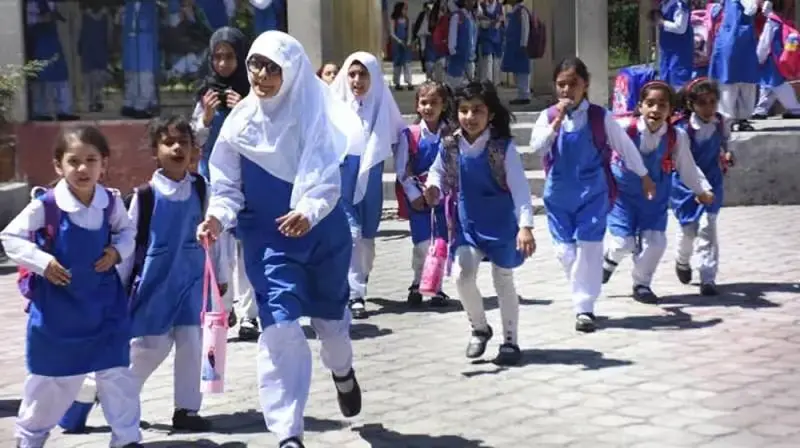Consequences of Missing Matric Exams: What Students Need to Know
Introduction
The Matric examination, officially known as the Secondary School Certificate (SSC), is one of the most important milestones in a student’s academic journey in Pakistan. Conducted by various Boards of Intermediate and Secondary Education (BISE) across the country, these exams determine a student’s eligibility for admission to higher secondary classes and, ultimately, future academic and career opportunities.
However, missing the Matric exams — whether due to illness, emergencies, or unavoidable circumstances — can lead to several short-term and long-term consequences. This article explores the academic, emotional, and administrative outcomes of missing the Matric exams and provides guidance on what students can do if they find themselves in such a situation.
1. Academic Consequences
a. Loss of an Academic Year
Missing the Matric exams often means waiting for the next examination cycle, which can result in losing an entire academic year. Since BISE boards typically conduct the annual exams once a year, students who fail to appear in the scheduled exams may have to wait several months for the next opportunity.
Even though some boards have introduced second annual (supplementary) exams, the delay still disrupts the academic flow. This lost time can affect college admissions and delay career plans.
b. Difficulty in Admission to Intermediate Classes
Most colleges in Pakistan require students to submit their Matric results at the time of admission to Intermediate (FA, FSc, ICS, ICom) programs. If a student misses the exams, they cannot provide the required result card, making them ineligible for admission until the next exam session.
As a result, students may miss out on admissions to reputable colleges and may have to settle for limited options later.
c. Academic Motivation and Learning Gaps
When students are unable to appear in exams, they often lose motivation and struggle to stay engaged in studies. The gap between Matric and the next exam session can create learning gaps, making it harder to retain previously studied material. Continuous study habits are crucial at this stage, and missing exams can disturb this rhythm significantly.
2. Emotional and Psychological Consequences
a. Stress and Anxiety
Exams are already a major source of stress for students, and missing them can worsen emotional strain. Students often feel guilt, fear, or disappointment after missing such an important milestone.
Parents and teachers, too, may unintentionally put pressure on the student, which can further increase anxiety. This emotional burden can negatively impact mental health if not managed properly.
b. Loss of Confidence
Many students who miss their exams begin to doubt their abilities. They may feel left behind compared to peers who successfully complete their Matriculation. This loss of self-confidence can reduce academic interest and future performance if not addressed through counseling or guidance.
c. Social Pressure
In Pakistani society, where academic achievement holds significant value, missing exams can lead to unwanted questions or criticism from relatives, friends, or neighbors. This social pressure can make students feel isolated or embarrassed, affecting their self-esteem.

3. Administrative and Official Consequences
a. Need for Special Permission or Documentation
Students who miss their exams must provide valid reasons — such as medical emergencies or unavoidable circumstances — if they wish to apply for any special consideration from their respective board. Without proper documentation, their absence is considered non-appearance, and they receive no marks or recognition for that session.
Some boards, such as BISE Rawalpindi and Lahore, may offer special relief measures or re-exam opportunities in extraordinary situations like law and order issues or natural disasters. However, these are exceptions and not regular policies.
b. Re-Registration or Re-Appearance Requirements
If a student misses all their papers, they are often required to re-register for the next session. This involves paying exam fees again, filling new admission forms, and sometimes getting fresh attestations. It is a time-consuming and costly process.
c. Impact on Scholarship and Financial Aid
Many scholarships and government education programs depend on timely academic progress. Missing exams can disqualify a student from such financial aid programs. For instance, merit-based scholarships often require continuous academic performance, which becomes impossible to prove without appearing in exams.
4. Career and Future Education Impacts
a. Delay in Higher Education Goals
Missing the Matric exams automatically delays admission to Intermediate programs, which in turn affects graduation timelines and professional goals. Students planning to pursue professional degrees like engineering, medicine, or computer sciences face a chain reaction of delays.
b. Limited Job Opportunities
For those who plan to start working after Matric, missing the exams can be a serious setback. Many entry-level jobs in government and private sectors require at least a Matric certificate. Without it, students cannot even apply, making it difficult to enter the workforce.
c. Competitive Disadvantage
Missing exams places students at a disadvantage compared to their peers. While others move ahead to college or technical training, those who missed exams must wait and prepare again, which can affect motivation and competitiveness.
5. How to Recover After Missing Matric Exams
a. Apply for Second Annual Exams
In recent years, many boards — including BISE Rawalpindi, Lahore, Karachi, and Faisalabad — have introduced second annual exams. These exams allow students who missed or failed in their first attempt to appear again within the same year. This is a great opportunity to avoid losing a full academic session.
b. Stay in Touch with the Education Board
Students should regularly visit their respective board’s official website or contact offices to stay updated about special announcements or relief policies. Boards occasionally announce special provisions for students affected by law and order situations, floods, or health crises.
c. Maintain Study Continuity
Even if you miss the exams, it’s important to continue studying. Keeping up with your syllabus helps you stay prepared for the next attempt. Enrolling in online classes or study groups can help maintain discipline and confidence.
d. Seek Counseling and Support
Emotional support from parents, teachers, and counselors is vital. Missing exams does not define a student’s worth or intelligence. Proper guidance can help restore confidence and encourage a positive outlook.
e. Manage Time Effectively
Use the gap productively — revise important topics, strengthen weak areas, and improve exam techniques. Create a new study plan focusing on better preparation and time management.
6. Preventive Steps for the Future
- Always keep track of exam schedules and deadlines.
- Prepare necessary documents (roll number slips, ID cards) well before time.
- Avoid last-minute stress by maintaining a consistent study routine.
- Keep backup transportation or emergency contacts ready in case of unexpected issues.
- Inform school authorities immediately if any unavoidable situation arises before exams.
Summary
Missing the Matric exams can have serious academic, emotional, and career-related consequences. From losing an academic year to facing social and financial setbacks, the impact can be wide-ranging. However, it’s not the end of the road. With the introduction of second annual exams and special relief measures by education boards like BISE Rawalpindi, students now have better chances to recover and continue their educational journey without long delays.







